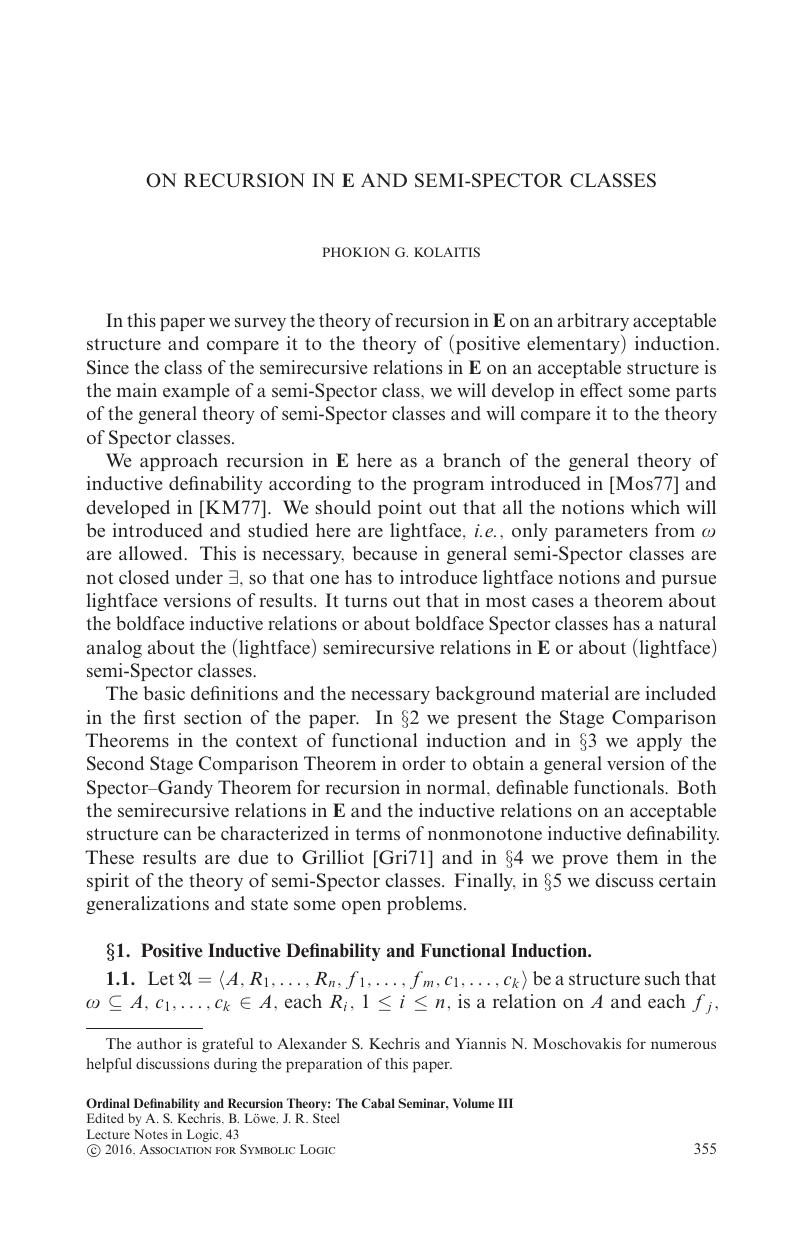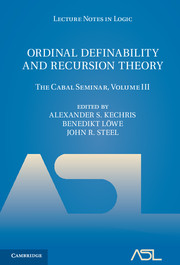Book contents
- Frontmatter
- Contents
- Preface
- Original Numbering
- PART V HOD AND ITS LOCAL VERSIONS
- PART VI RECURSION THEORY
- Recursion theoretic papers. Introduction to Part VI
- On recursion in E and semi-Spector classes
- On Spector classes
- Trees and degrees
- Definable functions on degrees
- Π12 monotone inductive definitions
- Martin's conjecture, arithmetic equivalence, and countable Borel equivalence relations
- Bibliography
- References
On recursion in E and semi-Spector classes
from PART VI - RECURSION THEORY
Published online by Cambridge University Press: 05 December 2015
- Frontmatter
- Contents
- Preface
- Original Numbering
- PART V HOD AND ITS LOCAL VERSIONS
- PART VI RECURSION THEORY
- Recursion theoretic papers. Introduction to Part VI
- On recursion in E and semi-Spector classes
- On Spector classes
- Trees and degrees
- Definable functions on degrees
- Π12 monotone inductive definitions
- Martin's conjecture, arithmetic equivalence, and countable Borel equivalence relations
- Bibliography
- References
Summary

Information
- Type
- Chapter
- Information
- Ordinal Definability and Recursion TheoryThe Cabal Seminar, Volume III, pp. 355 - 389Publisher: Cambridge University PressPrint publication year: 2016
